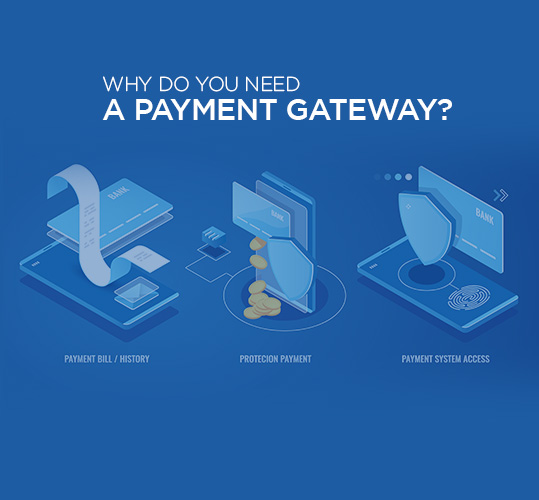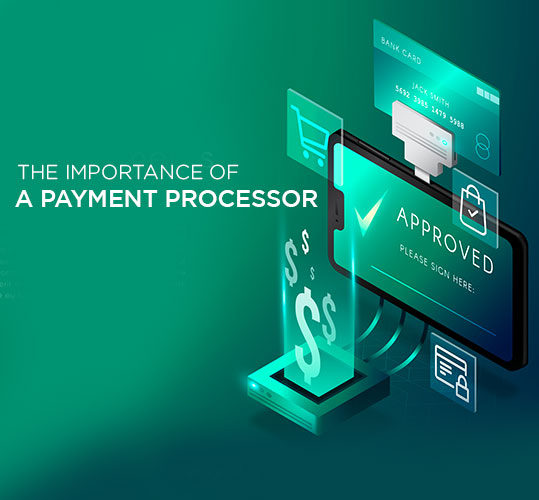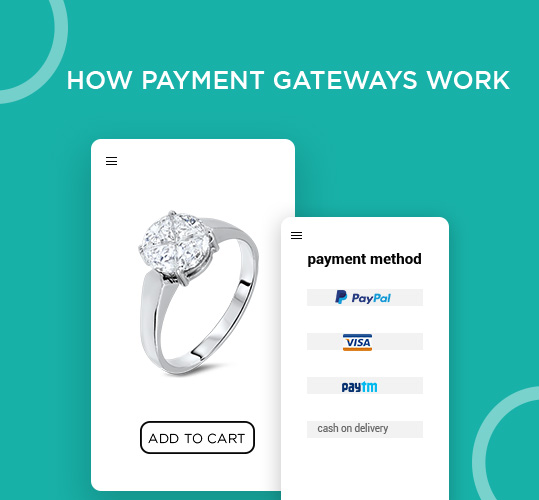When you’re running an ecommerce site, you can’t manage without a payment gateway. A payment gateway can be described as the mediator between ecommerce sites and the payment processor. The payment gateway is required to enable secure payment authorization for your ecommerce site.
Payment gateway in ecommerce
A payment gateway is a service that empowers all your credit card transactions through your credit card provider. A payment gateway service is a straightforward programming application. It’s fundamentally a channel between an ecommerce site and the bank that supports (or decays) a client’s credit card payment through the payment gateway providers. Eventually, a payment gateway is the last advance of the online sales process on an ecommerce site. Without it, you can’t have the option to charge your clients when they purchase things from your website.
Why Do You Need a Payment Gateway?
Payment gateway systems can be seen as the digital equivalent of credit card processors that you can discover in digital stores. This makes payment gateways significant in online retail environments.

You can go over numerous platforms of this sort available. While picking a payment gateway, it’s essential to concentrate on whether it ensures consistent and straightforward transactions, relates to quality principles and strategies, and ties down sensitive information to battle payment processing fraud.
A payment gateway is called to approve transactions among you and your clients. In this way, on the off chance that you possess an ecommerce site, which infers you’re preparing payments online, you should have a payment gateway. This is the best way to acknowledge credit cards through the Internet.
Transactions prepared over a payment gateway can be portrayed as “card-not-present” transactions. What the merchant has is the credit card information that the client enters. The merchant can’t see the client’s credit card.
What is the Role of a Payment Gateway?
Payment gateway services are utmost for taking care of all the credit cards online. It is a comparable procedure as a point of service (POS) device does when you pay for your petrol. The primary role of the payment gateway is to support the transaction between you and your clients. Remember, without a payment gateway’s approval, the transaction procedure will not complete, and you won’t get the cash.
A payment processor dissects and moves transaction data. Payment gateways affirm the transaction of funds among purchasers and merchants.
The Importance of a Payment Processor
At the point when clients visit your eCommerce store, they’re searching for a good deal on a product or service and a simple and secure payment process. The payment gateway that you decide for your eCommerce site ought to impart trust in your customers as they make their buys.

Secure payment processing encourages the transaction of online payments, customer data, and other unsafe data and ensures against extortion and other security issues.
Shortcomings of Online Payment Processing
The facts confirm that online shopping is getting increasingly well known because of its ease of usage and affordability. Be that as it may, it doesn’t mean ecommerce is without defects or deficiencies. There are difficulties that smaller organizations face while working collectively on the web. While ecommerce security and payment systems can ensure against extortion and security dangers, there is as yet a risk of security breaks for online stores.
Credit card frauds
Online payment transactions are referred as”card not present” transactions. This sort of financial transaction gives a unique chance to credit card fraud. Stolen credit card numbers and other individual data can be utilized to make buys without the consent of the cardholder.
Since the receiver’s bank, facilitating the merchant account, must compensate for any harm brought about by taken credit cards, a few issuers charge exorbitant fees to shippers who routinely perform card, not present (CNP) transactions.
An ideal approach to maintain a strategic credit card fraud is to utilize a payment processor that checks client data through fraud scrubbing technology.
Chargebacks
Two kinds of chargebacks can harm the operations of a business: appropriation chargebacks and shopper chargebacks. In the wholesaler arena, chargebacks happen when your provider charges you a more significant expense for an item that you charge the shopper. Recovering the loss is troublesome, and regularly a merchant assumes the misfortune as opposed to pursuing a provider.
Shopper chargeback can happen for any vendor that acknowledges credit card payments. At the point when a fake client makes a buy with a taken card or a genuine client doesn’t get merchandise or services, the bank that gave the client their credit card powers a business to discount the buy.
Shopper chargebacks can do genuine harm to your business, and you might be required to pay higher, preparing rates and expenses or face the possibility of losing your merchant account out and out. Great payment processors make it hard for false transactions to happen, subsequently reducing the plausibility of chargebacks.
International Currency
A key advantage of working an online store is the capacity to grow your marketplace far and wide. You can sell your products and ventures essentially to any place with the Internet. Be that as it may, not all payment processors have the fundamental infrastructure to change over and draw in worldwide transactions.
You have to set up an ecommerce payment gateway that represents considerable authority in international currencies. Regardless of whether you don’t work universally today, you might need to extend your business to a worldwide marketplace tomorrow.
Integration and Compatibility
Setting up an online store isn’t simple. You have to guarantee your shopping cart software, stock inventory management software, shipping database, and correspondences network are working in a state of harmony before you even start to coordinate your payment processing gateway. As it were, a great deal can turn out badly with innovative combinations.
The ecommerce security and payment systems you pick need to consistently incorporate with your current programming, equipment, and site.
How payment gateways work:
On the off chance that a client puts in a request from an online store, the internet payment gateway plays out a few undertakings to affirm the transaction:

- Encryption: The web browser will scramble the information which is to be sent among it and the seller’s web server. At that point, the gateway will send the transaction data to the payment processor, which is used by the merchant’s acquiring bank.
- Authorization Request: The payment processor will automatically send the transaction data to the bank where the card related to. The credit card’s giving bank will see the authorization request, and it might favor or delay the payment.
- Filling the order: Then, the processor will advance the relating to the merchant and the client to the payment gateway. When the payment gateway gets this reaction, it will impart it to the site or interface to process the payment. Here, it is explained, and an appropriate reaction will be produced. This is by all complicated and lengthy process; however, it usually takes just a couple of moments as the most extreme. At this point, the merchant will take care of the order.
Different Functions of Payment Gateway:
Payment gateways will show the orders with various valuable tools. This screening procedure will channel the limit of fraud. There is an immense number of gateway fraud detection tools are there which incorporates:
- Delivery address confirmation
- AVS checks
- Computer fingerprinting innovation,
- Velocity pattern examination
- Identity morphing identification
- Geolocation
Setting Up the Right Payment Gateway
In case you’re in the ecommerce industry, a merchant account and a payment gateway will be required for accepting credit cards online.
Firstly, you should lawfully set up your business and then opt for payment gateway installation; as tax ID number, called an EIN, will be required during registration. You should open an account, buy a domain name, and have a working site. At that point, you should choose a third-party processor with the goal that you can begin accepting payments online.
A payment processor is regularly a third-party organization that handles payment transactions. A payment processor likewise gives credit card machines so you can acknowledge credit card payments face to face.
Picking the reasonable payment gateway for your business can regularly decide the achievement of your online business.
Most importantly, when merchants are searching for appropriate and the leading payment gateway, they must know the reason behind choosing the payment gateway and what are the services offered by the payment gateway supplier.
For instance, what are the features that they will provide for a business, the credit card machines, and different things they have to search for before incorporating them into one. This is important for them to stay updated about changes in the service.
Making sense of the right payment end for the online store will be the way into the long term accomplishment for your online business.








